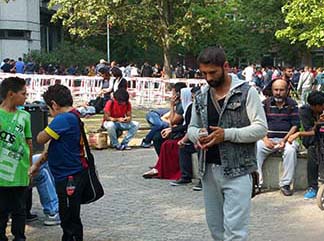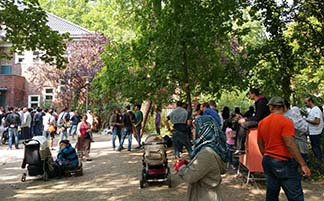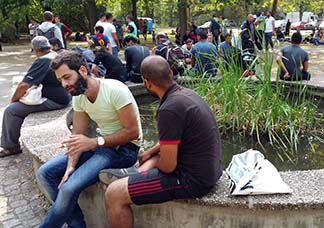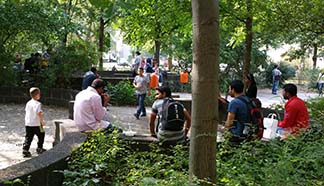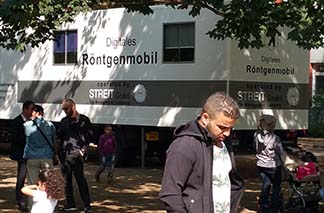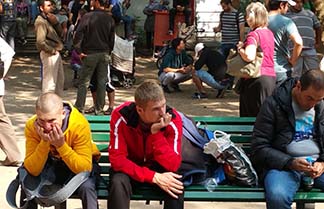
By Lucy Komisar
Sept. 21, 2015
Before the refugee crisis exploded in September, there were already people seeking help in Germany. On August 19th, I visited a reception center in Berlin, taken there by Karsten Voigt, who as a Social Democratic member of parliament had for decades led SPD foreign policy there.
Longtime friends since I first reported about Germany in 1979, I had had lunch with him. And after that he said, “I want to take you someplace.”
So we walked along Turmstrasse in Moabit, the neighborhood where he lives. We arrived at “Lageso,” acronym for Landesamt für Gesundheit und Soziales. Office for Social and Health Services. It was originally a place where people got health services.
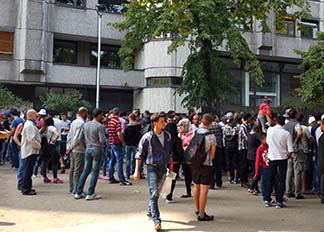
Now it is the central place of the state of Berlin to receive refugees. It is not a place for general migration.
Voigt said, “Most of the asylum seekers come from Syria. But there are also asylum seekers from Afghanistan, Iraq, Somalia and Eritrea.”
He explained, Asylum seekers from the Balkans, which are also there in relative high numbers, normally do not get asylum. But they ask there for asylum because the decision takes normally several months. And in this period they get social benefits, which are higher than their income such as Roma (Gypsies) get in Albania or Kosovo.

We saw a large brick building surrounded by a park with benches and shrubs. Children played, people talked on cell phones or lounged on benches. A large white van offered lung x-rays. Young German volunteers walked around with trays of watermelon.
Karsten Voigt said, “The street is Turmsträe 21 in a neighborhood which is called Moabit. And there is an irony of that. Because this neighborhood was in the 18th century a place for the French Huguenots who emigrated to Prussia at a time when Prussia was more tolerant than France.”
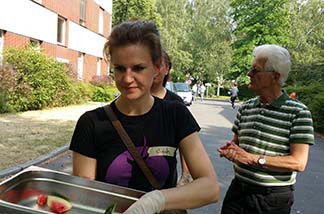
Here are photos of what we saw. Volunteers giving out watermelon. An x-ray van to examine for lung disease. People waiting, hanging out.
There are probably a lot more people there now!
Still, it provides an answer to why refugees thought Germany would welcome them. No barbed wire, for example.
